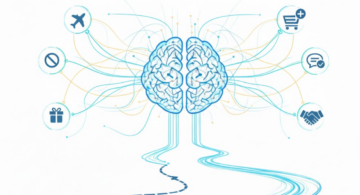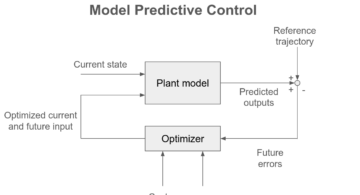Eyes, JAPAN
Why Is Agentic AI a Game Changer for Enterprises?
Kumudu
Enterprise automation has come a long way, from simple rule based scripts to complex Robotic Process Automation (RPA) systems that can handle repetitive workflows. But as businesses grow in complexity and speed, traditional automation struggles to keep up. Static workflows break easily, require constant maintenance, and lack the ability to adapt when things don’t go exactly as planned.
That’s where Agentic AI comes in,
Unlike conventional automation, Agentic AI uses large language models (LLMs) and decision-making frameworks to create agents that can reason, adapt, and act autonomously. These AI agentsdon’t just follow scripts, they assess situations, plan actions, call external tools or APIs, and adjust based on outcomes. In essence, they behave more like junior team members than macros.
What Is Agentic AI?
 Agentic AI refers to autonomous software agents powered by advanced AI models, such as large language models (LLMs). Unlike traditional automation tools that followpredefined rules, Agentic AI agents can:
Agentic AI refers to autonomous software agents powered by advanced AI models, such as large language models (LLMs). Unlike traditional automation tools that followpredefined rules, Agentic AI agents can:
- Understand context: Interpret complex scenarios and adapt accordingly.
- Make decisions: Choose actions based on real-time data and objectives.
- Learn and improve: Evolve their performance through continuous feedback.
These capabilities enable Agentic AI to handle tasks that were previously too complex for automation.
What Makes Agentic AI Different?
Traditional automation tools rely on pre-defined rules and flows. If something falls outside those conditions, like an API changes, data is malformed, or an unexpected input appears then the automation fails.
Agentic AI flips that paradigm. By combining LLMs with memory, goals, and access to tools like databases, APIs, or even browsers. So these agents can:
- Understand tasks written in plain language
- Break down high level goals into actionable steps
- Make decisions based on changing input
- Learn from previous interactions or outcomes
Instead of rigid “if-this-then-that” logic, you get adaptive, context-aware automation.
Real World Applications in Enterprise Environments
Here’s what this looks like in practice:
-
Customer Support Automation
Agentic AI can manage customer inquiries end-to-end, understanding context and providing accurate solutions without human intervention. This leads to faster response times and higher customer satisfaction.
-
IT Operations
In IT departments, Agentic AI monitors systems, detects anomalies, and initiates corrective actions autonomously, reducing downtime and maintenance costs.
-
Supply Chain Management
Agentic AI analyzes real-time data to optimize inventory levels, predict demand, and adjust logistics, ensuring efficient and responsive supply chains .
-
Financial Services
In finance, Agentic AI detects fraudulent activities, automates compliance checks, and manages routine transactions, enhancing security and operational efficiency.
How Does Agentic AI Work?
Agentic AI systems typically consist of:
- Perception modules: Gather data from various sources.
- Decision making engines: Analyze data and determine actions.
- Action modules: Execute tasks through interfaces or APIs.
- Learning components: Update knowledge bases based on outcomes.
This architecture allows Agentic AI to function autonomously, adapting to new situations and improving over time.
Why Is Agentic AI a Game Changer for Enterprises?
Traditional automation excels at repetitive, rule based tasks. However, it struggles  with processes that require adaptability and decision-making. Agentic AI fills this gap by:
with processes that require adaptability and decision-making. Agentic AI fills this gap by:
- Enhancing efficiency: Automating complex workflows reduces manual effort and errors.
- Improving customer experience: Providing personalized, real time responses enhances satisfaction.
- Enabling scalability: Handling increased workloads without proportional increases in resources.
Benefits of Implementing Agentic AI
- Cost Reduction: Automating complex tasks lowers operational expenses.
- Increased Productivity: Employees can focus on strategic activities while AI handles routine tasks.
- Enhanced Accuracy: AI reduces errors associated with manual processes.
- Scalability: Systems can handle growing workloads without additional resources.
- Increased Operational Efficiency: Automates complex, decision-heavy workflows.
- Better Decision-Making: Uses real-time data to make informed, contextual decisions.
- Cross-Functional Integration: Connects with APIs, databases, tools, and other systems.
Getting Started with Agentic AI
To implement Agentic AI in your organization:
- Identify suitable processes: Look for tasks that are complex, repetitive, and data-driven.
- Select appropriate tools: Choose AI platforms that align with your business needs.
- Pilot and evaluate: Start with a small scale implementation to assess effectiveness.
- Scale gradually: Expand usage based on pilot results and organizational readiness.
Agentic AI is more than just the next step in automation. It’s a smarter, more flexible way to get things done. By combining the power of large language models with real world decision making, these AI agents can handle the complexity that traditional tools just can’t. Whether it’s streamlining operations, improving customer experience, Agentic AI helps your team work faster, better, and with fewer roadblocks.
It’s not about replacing people, it’s about giving them the tools to do more of what matters. And that’s a game changer.

 2026/01/23
2026/01/23 2025/12/12
2025/12/12 2025/12/07
2025/12/07 2025/11/06
2025/11/06 2025/10/31
2025/10/31 2025/10/24
2025/10/24 2025/10/03
2025/10/03 2025/08/30
2025/08/30